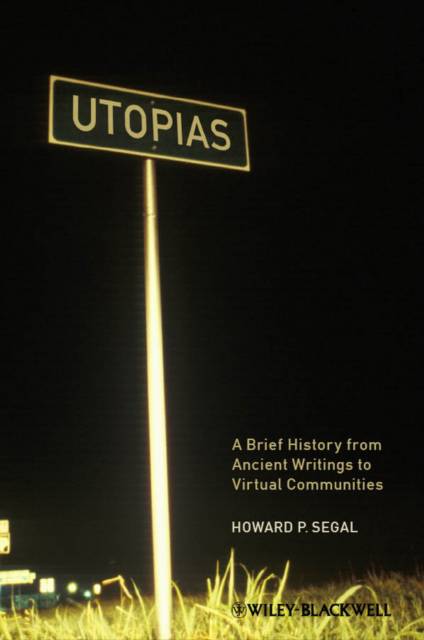
Door een staking bij bpost kan je online bestelling op dit moment iets langer onderweg zijn dan voorzien. Dringend iets nodig? Onze winkels ontvangen jou met open armen!
- Afhalen na 1 uur in een winkel met voorraad
- Gratis thuislevering in België vanaf € 30
- Ruim aanbod met 7 miljoen producten
Door een staking bij bpost kan je online bestelling op dit moment iets langer onderweg zijn dan voorzien. Dringend iets nodig? Onze winkels ontvangen jou met open armen!
- Afhalen na 1 uur in een winkel met voorraad
- Gratis thuislevering in België vanaf € 30
- Ruim aanbod met 7 miljoen producten
Zoeken
€ 161,45
+ 322 punten
Omschrijving
This brief history connects the past and present of utopian thought, from the first utopias in ancient Greece, right up to present day visions of cyberspace communities and paradise.
- Explores the purpose of utopias, what they reveal about the societies who conceive them, and how utopias have changed over the centuries
- Unique in including both non-Western and Western visions of utopia
- Explores the many forms utopias have taken - prophecies and oratory, writings, political movements, world's fairs, physical communities - and also discusses high-tech and cyberspace visions for the first time
- The first book to analyze the implicitly utopian dimensions of reform crusades like Technocracy of the 1930s and Modernization Theory of the 1950s, and the laptop classroom initiatives of recent years
Specificaties
Betrokkenen
- Auteur(s):
- Uitgeverij:
Inhoud
- Aantal bladzijden:
- 304
- Taal:
- Engels
- Reeks:
- Reeksnummer:
- nr. 45
Eigenschappen
- Productcode (EAN):
- 9781405183291
- Verschijningsdatum:
- 21/05/2012
- Uitvoering:
- Hardcover
- Formaat:
- Genaaid
- Afmetingen:
- 142 mm x 218 mm
- Gewicht:
- 453 g

Alleen bij Standaard Boekhandel
+ 322 punten op je klantenkaart van Standaard Boekhandel
Beoordelingen
We publiceren alleen reviews die voldoen aan de voorwaarden voor reviews. Bekijk onze voorwaarden voor reviews.











